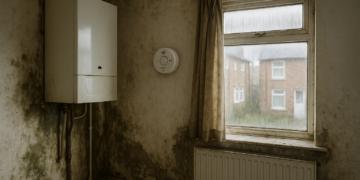Story Highlight
– Resident doctors in England strike over pay demands.
– 13th walkout since March 2023; lasts until Tuesday.
– Government refuses to consider pay uplift for doctors.
– BMA argues pay for medics lags behind inflation.
– NHS warns strikes may cut staffing and appointments.
Full Story
Thousands of resident doctors in England have commenced a strike today, marking the 13th walkout since March 2023, amidst ongoing concerns regarding pay and working conditions in the National Health Service (NHS). The industrial action is scheduled to last from 7am today until Tuesday, creating uncertainty in healthcare provision across England.
The Health Secretary has recently dismissed calls for a pay increase, while NHS leaders caution that continued industrial action could lead to significant reductions in frontline staff and the cancellation of patient appointments and operations. Dr Tom Dolphin, chair of the British Medical Association (BMA), stood by the decision to strike, highlighting that salaries for resident doctors remain “way down” compared to levels seen in 2008.
The primary grievances prompting the strike are centered around pay. The BMA asserts that to effectively address issues stemming from inflation, resident doctors—previously referred to as junior doctors—require a substantial pay increase of 26%. Dr Dolphin, in an interview with Sky News, noted the long-standing erosion of wages, which has left these medical professionals lagging behind their counterparts in other public sectors. He explained: “When we started the dispute… the lowest level of the resident doctors were being paid £14 an hour.” Although there have been some raises in recent years, Dr Dolphin maintained that these adjustments have not fully restored the wage levels that should be expected. He commented, “The secretary of state himself called it a journey, implying there were further steps to come, but we haven’t seen that.”
In a further critique, the BMA cautioned against the expectation that doctors could be diverted from their strike to cover planned NHS work. Dr Jack Fletcher, chair of the BMA’s resident doctors committee, even articulated accusations of NHS managers attempting to “emotionally blackmail” frontline staff to end the strike. He reiterated that the strikes were not a spontaneous decision and stressed, “What has been offered so far still leaves thousands of resident doctors without a role this year, and the government seems determined to cut pay even further next year.” This assertion comes in the wake of news that the Treasury had approved £1 billion to fund anticipated job cuts across the NHS.
The government has responded to the demands made by the BMA by stating that last year’s settlement, which raised junior doctors’ pay by 29%, was among the largest public sector increases and should have brought closure to the disputes that have plagued the NHS over the previous two years. Wes Streeting, the current Health Secretary, firmly rejected the BMA’s request for additional pay, citing a recent poll published in The Times that revealed 48% of resident doctors wanted the action to cease, while only 33% supported continuing it. He stated: “The BMA didn’t put our offer to their members, and now we know why: they wouldn’t have backed their unnecessary and irresponsible strikes. They should give their members a say, call off these strikes and stop risking the NHS’s recovery.” This poll involved a sample of 202 junior doctors, with 102 identifying as BMA members.
As for the potential repercussions of the strike, previously, when resident doctors last engaged in industrial action, over 54,000 medical procedures and appointments faced cancellation or required rescheduling, despite the NHS managing to maintain 93% of planned activity. The NHS Confederation and NHS Providers, organizations that represent health trusts, have indicated that ongoing strikes could lead to a reduction in staff numbers and a decrease in the number of tests, appointments, and operations. The consequent fallout for patients is expected to include longer waiting times for care, with some unable to work without necessary treatment. NHS England has advised patients to attend scheduled appointments unless informed otherwise and to utilise emergency services like 999 or A&E as required, assuring that availability remains consistent alongside regular GP services.
In terms of remuneration, a recent analysis by the Nuffield Trust observed that a newly graduated doctor would earn a basic annual salary of £38,831 in the fiscal year 2025/26. Factoring in additional compensation for working unsociable hours, average earnings for such doctors are estimated at around £45,900. This figure is projected to rise to approximately £54,400 in the second year of practice, and specialty registrars could expect average salaries around £80,500. The BMA highlighted that at the commencement of the current pay dispute, newly qualified doctors were earning about £14 per hour. This translates to an annual salary of approximately £29,120 for a standard 40-hour workweek, positioning it closely to the earnings of a graduate doctor from 2022/23, which were around £29,384 according to Full Fact. However, this latter figure is calculated over a full year without accounting for annual leave or additional pay for late or weekend shifts.
As the strike unfolds, both NHS administrators and the BMA face the pressing challenge of resolving disputes that have profound implications for healthcare delivery and the well-being of not only the doctors involved but also the patients who depend on their services.
Our Thoughts
The ongoing strikes by resident doctors underscore significant systemic issues within the NHS, primarily regarding pay. To prevent such industrial actions, NHS management should have proactively engaged with medical staff to address pay concerns and improve working conditions before disputes escalated. A constructive dialogue, supported by transparent negotiations based on the NHS Constitution and the Health and Safety at Work Act 1974, could have fostered a more supportive environment that values staff welfare.
Key lessons include the necessity for proper workforce management and financial planning to prevent erosion of staff pay and morale. The NHS must comply with the relevant legislation, including the Employment Rights Act 1996, ensuring fair treatment and the right to negotiate pay.
Additionally, implementing regular reviews of salary against inflation and living standards might prevent feelings of exploitation among healthcare workers. Establishing clearer pathways for resolving grievances can mitigate risks of disrupted services and support staff retention, which is essential for a functioning health system. Future incidents could be averted through strengthened communication and a commitment to staff welfare, aligned with the principles of the UK’s health and safety framework.























This situation underscores the urgent need to address pay and workforce morale to protect patient safety and service continuity. Persistently stagnant salaries and the resulting strikes increase pressure on remaining staff and risk delays in care. Constructive dialogue is needed now to reach a sustainable settlement that values clinicians appropriately and helps stabilise staffing levels. In the meantime services should prioritise urgent and emergency care, communicate clearly with patients about expected changes, and use contingency staffing plans to minimise harm.
This dispute highlights the clear link between fair pay and staff retention. Persistent real term pay erosion undermines morale and makes it harder to keep experienced clinicians in service. Disruptions to care are regrettable but reflect wider workforce pressures that will not be solved without addressing pay and working conditions alongside long term planning to reduce vacancies and support staff wellbeing.
This dispute highlights the wider challenge of maintaining a safe and effective health service when staff feel undervalued and underpaid. Ensuring staff are fairly compensated is key to retention and morale, which directly affects patient safety and continuity of care. While negotiating a sustainable settlement is essential, health service leaders must also plan robust contingency measures to minimise harm to patients during industrial action and to address staffing gaps longer term.
This highlights the urgent need to address workforce morale and retention through fair pay and improved working conditions. Protecting patient safety must remain the priority, so contingency plans and clear communication about service impacts are essential while negotiations continue. Investing in staff is an investment in safe, sustainable care.